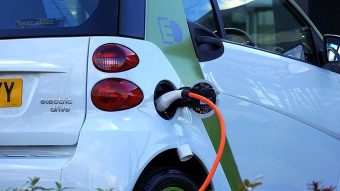
A group of German and Italian public transit companies are seeking tenders for the development of 63 hydrogen fuel cell buses as part of an EU-funded low emission transport project to help boost urban air quality.
The joint procurement process aims to secure lower prices for building the low emission buses, which are envisaged to begin operating “in the next few years” across Wuppertal, Frankfurt, Mainz, Wiesbaden and Cologne in Germany and South Tyrol in Italy.
According to German transport firm WSW mobil GmbH, which is leading the procurement process on behalf of the group, hydrogen fuel cell vehicles produce lower nitrogen oxide (NOx) emissions than fossil fuel equivalents and with ranges of up to 400km on a single charge can be as flexible as diesel buses.
The hydrogen needed for the buses can also be produced either as a by-product from the chemicals industry or via an “electrolysis” process from renewable electricity, the firm added.
Other transport companies taking part in the procurement group include German firms Verkehrs-Verbund Mainz-Wiesbaden GmbH, traffiQ Frankfurt and Regionalverkehr Köln GmbH, as well as Italian local transport provider SASA SpA-AG in Bolzano.
The procurement process is being partly supported by the EU-funded JIVE project, which is aiming to deploy 139 new zero emission fuel cell buses across nine cities in Europe. The German firms in the group have additionally bid for funding from the German government’s National Innovation Program on Hydrogen and Fuel Cell Technology (NIP II).
The transport operators are part of a fuel cell bus procurement cluster which currently consists of 15 companies across Germany and Italy with a common target of switching their complete bus fleets to emission-free vehicles in the future in order to combat air pollution.
The news also came ahead of new research yesterday estimating that fuel consumption of new trucks could be cut by 33 per cent between 2020-2030 if manufacturers introduce proven fuel efficiency technologies, such as aerodynamic improvements and low rolling resistance tires.
Such technologies and improvements would be cost-effective for manufacturers and hauliers, as “virtually all the fuel savings” could be achieved within a payback time of less than three years, according to the study by consultancy Ricardo Energy & Environment.
Commissioned by European NGO Transport & Environment, the report found that nearly all of the technologies considered for the US market under phase two of America’s truck CO2 standards could be applied to EU trucks with “substantial” fuel savings potential and emissions benefits.
Trucks represent less than five per cent of all vehicles on the road in Europe but are responsible for around 30 per cent of road transport CO2 emissions, according to T&E.
Stef Cornelis, safer and cleaner trucks officer at T&E, said fuel consumption technologies that could help cut CO2 emissions from the European fleet were already available but have yet to be deployed, but that if they were hauliers could benefit from lower fuel consumption bills.
“That explains why truck fuel economy has stagnated for the last two decades,” said Cornelis. “Europe needs CO2 standards for trucks now so as to boost competitiveness in innovation and accelerate the uptake of fuel efficiency technologies.”
Source: businessgreen.com



